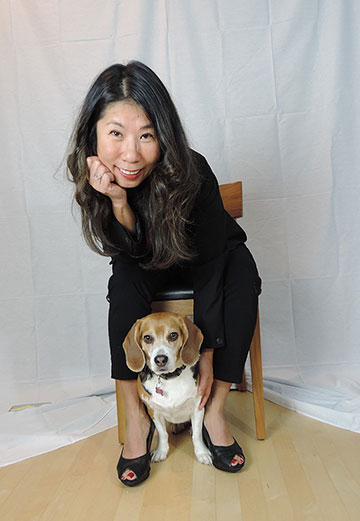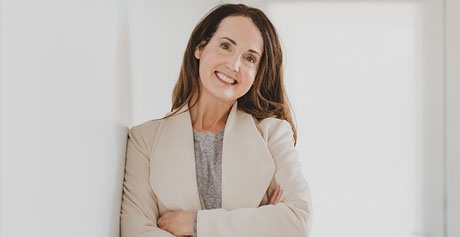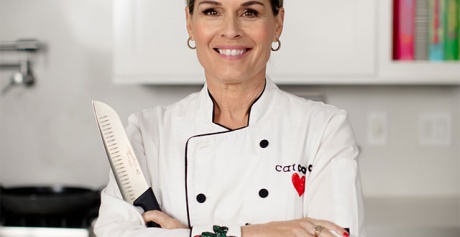She’s Been a Believer of Living Life Boldly & is Always Undertaking New Challenges to Learn & Grow. An Exclusive Interview with Corporate Lawyer & Founder of The KOA Club, Susan Seah
 Q: What was your first job? How did it shape or impact you?
Q: What was your first job? How did it shape or impact you?
SS: My first job was being a summer law intern for a corporate law firm during my second year of law school. I was only in my early 20s at that time and totally dazzled and intimidated by all the high-powered men and women partners at the firm, who seemed to have the power to make or break the careers of the young associates working at the firm. During that summer internship, they rotated the interns through all the various departments so that we can get a taste of the different types of legal work and they can get a look at the potential associates for hire. When I finished my summer internship, the firm made me an offer to join their real estate department when I graduate from law school. Up to that point, I had never even considered being any type of lawyer other than a corporate lawyer and was surprised by their offer. Though fearful that I might not have a job for doing so, I politely turned them down and explained that my passion was to be a corporate lawyer. To my delight and relief, the firm came back with an offer for me to join them as an associate in the corporate department. I learnt then that I should never be afraid to ask for what I want, even if it felt like I, a vulnerable little human, was asking for a piece of the moon from a group of demi-gods (at least that was how I viewed the senior partners at the firm then).
Q: When did you know you would pursue a career as an Attorney?
SS: When I was growing up, my parents would always tell other people that they believe I would become a lawyer someday. To this day, I do not know why they did that because no one else in my family was a lawyer – perhaps it is because I would always argue for my rights even as a young child. That thought of being a lawyer stayed with me all throughout my childhood. I graduated college quite early at 20, and then received my MBA at 21. Selfishly, I was not quite ready to give up life as a student at that time and as a natural turn of things, chose to enter law school. I enjoyed law school and became truly passionate about being a lawyer when I did the Client Counseling competition. My team came in as the first runner-up in that competition, and I realized that I really enjoyed counseling clients on their legal issues and working with them closely as their trusted partner in finding solutions to their issues.
Q: What expectations did you have after graduating and receiving your law degree?
SS: My expectation as a new young lawyer in a large law firm was to work extremely hard and eventually, after many years, be a rainmaker and one of the powerful partners in the firm. At that time, my thoughts were not about how to make the world a better place, but rather, how do I survive days and nights working nonstop in order to exceed expected billable hours so I could be recognized among the other associates who were all competing for limited coveted work from the partners.
Those first few years as a young lawyer in a large law firm were hard with very little time to do anything outside of work. A few years into my practice, I was recruited into a publicly traded technology company as their Senior Attorney in a growing legal department and that was where I learnt an incredible amount as a corporate lawyer, eventually becoming the Associate General Counsel there. Later, I was recruited as General Counsel for another up and coming technology company. In 2009, I started my own boutique corporate law firm with another colleague and have since represented a number of technology companies as their outside general counsel through my firm.
Q: Can you share with our audience the types of cases you handle in commercial and intellectual property transactions?
SS: In my past and current practice, I have handled and managed a wide range of legal affairs for technology companies, including overseeing different types of commercial and technology related transactions and protecting intellectual property assets and interests. My practice also covers other aspects of corporate law, including company formations, merger and acquisitions, strategic alliances, new business ventures, corporate restructurings, and general business counseling. I have advised public companies and their boards in connection with corporate responsibility, fiduciary duty and disclosure matters and have also provided guidance to start-ups and closely-held corporations. My experience further includes structuring, negotiating, and documenting cross-border business transactions.
Q: How did the Koa Club come start? How many members do you currently have?
SS: The Koa Club just started in September 2019. Since it is not even a year old, we do not publicly share our membership numbers at this time, but we are growing in our membership reach, our programming, our vision. We are learning to pivot and adapt quickly as things change given the unexpected COVID-19 environment and finding various ways to best build and sustain a strong community of women achievers during these uncertain times. I have been humbled by some of the hard lessons I have learnt during this process, in awe by what I have been able to achieve in such a short time, and grateful for all the support that I have gotten from so many unexpected sources.
Q: Where do you see the Koa Club five years from now?
SS: I see The Koa Club thriving all over the country and perhaps even internationally, as the go-to social and leadership community for women achievers. Being a woman achiever can mean many different things – there are no limits to how someone can be a woman achiever – its not about title but about the boldness and drive to achieve challenging goals that each woman sets for herself in her professional or personal life. The word “Koa” in the Hawaiian language means “fearless”, so we want our members to always be Koa, be brave. I see The Koa Club being that trusted support for women achievers to connect with one another so they can help inspire each other, grow together in their knowledge and skills (whether growing in their arsenal of professional skills or practical life skills) and finding ways as a group to effectively give back to the community on making the world a better place.
Q: What is one word of advice you can offer to young women starting out who want to reach your level of success?
SS: If it is just piece of advice I can give, I would say “believe in yourself”. We need to believe in ourselves in order to create the life we want to have and reach the goals we have set for ourselves. It doesn’t mean we won’t encounter failures but if we believe in ourselves, then failures are just our steppingstones towards reaching our successes and would not cripple us from accomplishing our missions. If we believe that we can, it will drive us to take actions to achieve the outcome of that belief.
Q: What do you feel is one of the key barriers to underrepresented minorities and women achieving success?
SS: I believe one of the key barriers to underrepresented minorities and women achieving success is the lack of effective mentorship opportunities. When I first started out in my legal career at the large law firms, I was fortunate to have mentors assigned to help guide me through surviving life at big law, which I greatly appreciate as those mentors were able to help me through some minefields. However, all the mentors assigned to me were middle-age white males and much as I appreciate what they had done for me, I was not able to share some of the fears and concerns I had as a young female and a minority. I then had to actively seek out mentors at the firm who were more like me by joining the firm’s Minority Committee. I still remember being in absolute awe of these incredible minority men and women who chaired the firm’s Minority Committee and greatly treasured their advice and guidance. Mentors do not have to be the same race or same gender as the mentee, but it is crucial for the mentors to recognize that a mentee’s race, gender, or sexual orientation could be make career advancement more challenging. Companies and organizations should set up formal mentoring programs in order to make mentoring opportunities available, help the mentors understand some of these unique challenges faced by these underrepresented groups, and actively encourage minority and women mentees to seek out a diverse group of mentors who can support their growth and path to success.
Q: What's the greatest fear you've had to overcome to get where you are today?
SS: I don’t think I have one great fear to overcome – it is more a series of fears I have to deal with depending on the circumstance. For example, when I was doing my Ironman and other triathlon races, I was always terrified of drowning (as I am deathly afraid of deep water) and crashing my bike (as I am not a very good cyclist and absolutely awkward perched on a bike). Yet, I saw able to swallow those fears at those race moments because I really wanted to complete the races. Another example was when I was hired as General Counsel for a company for the first time, I had initial fears that I may not know enough to hold such a leadership position, but I quickly recognized that such self-doubt was not productive. At all those moments of self-doubt, I tell myself that I believe in myself, that I could do it, that I deserve that achievement and that I acknowledge all those fears but refuse to give them legs. I still have plenty of fears today which I accept, because I know that I will always be able to overcome all these fears at the right time, no matter what they are, simply because I believe in myself.
Q: What’s one lesson you’ve learned in your career that you can share with our audience?
SS: I’ve learnt that it is important to keep striving outside my comfort zone. Just because I may have achieved a career goal, I set for myself, it does not mean that I am done. I believe we all have the capabilities to stretch ourselves far beyond what we may currently perceive as our limitations. Imagine a goal as a rung in a very tall, almost jack and the beanstalk-like, ladder, where sometimes we cannot see what is waiting for us all the way at the top. If we keep moving up the rungs, the top may become clearer to us and we should be fearless in climbing up the rungs, seizing opportunities smartly when we see them even if they are outside our comfort zones, giving them our best attempt, be ready to jump back on the rung if we somehow fail and fall off the ladder at any time, and be willing to even sidestep to a new ladder if it makes sense.
Q: Which woman inspires you and why?
SS: There are many women who have inspired me in so many ways. If I had to pick just one woman whom I think is absolutely amazing, it would certainly have to be Ruth Bader Ginsburg, the Associate Justice of the Supreme Court of the United States and co-founder of the Women’s Rights Project at the American Civil Liberties Union, or otherwise known as the Notorious R.B.G.! She was the second woman to be appointed to the position as a Supreme Court justice and is a great example of someone who lives her beliefs and is fearless in voicing them. She has said so many inspiring things in her life, and one of her sayings that I often repeat is “Women belong in all places where decisions are being made. It shouldn't be that women are the exception."
Q: How do you maintain a healthy work life balance?
SS: If you look at my LinkedIn profile, you may think that I am incredibly busy with the many different professional pursuits I am involved in. Then if you look at my Facebook profile, you’ll think that I must have a lot of free time because I have tons of pictures posted of me doing a great deal of fun stuff outside work. I admit that I am always working. I also admit that I am always doing fun things. I believe in the importance of unplugging from work and for me, that is not necessarily any set time of day every day. Rather, I find snatches of time during each busy day to do something other than work, which can be finding time to play with my dog, engage in exercise, watch a TV show, sing aloud to some songs, or even work on a household project for a short period of time. I find that these snatches of time out from work re-energizes me to get right back on the horse to tackle work. On weekends, I would devote one day to doing something fun, challenging or absolutely nothing at all. I also make it an important aspect of my life to maintain healthy and supportive relationships with friends and loved ones. I don’t think there is such a thing as perfect work life balance, but it is important to find time and ways that work for each of us to nurture our emotional, mental, and physical selves. “All work and no play makes Jack a dull boy”, as they say and I’ve no doubt would also make Jane sad and unfulfilled.
Five Things About Susan Seah
1. If you could talk to one famous person past or present, who would it be and why?
I would like to talk to John Oliver, the Emmy winner talk show host on Last Week Tonight with John Oliver. I enjoyed hearing his viewpoints about current events and though I may not always agree with his assessments of on every topic he discussed on his program, I appreciate his sense of humor, his fearlessness in voicing his opinions, and his ability to make fun of himself. I want to ask him how chooses his topics and why, how he handles negative reactions from critics of his program, and his secret to successfully wooing people to watch his show.
2. Favorite city?
Singapore, which is where I was born and raised until I left for the United States at 16. It’s a young country (only 55 years old) and have successfully morphed in such a short time to become a powerhouse nation. Some family members, including my parents, still live there and I will always have a soft spot for Singapore with its unique multi-racial culture, its delicious food, its funny Singlish way of talking, its limitless shopping, its drive to always better the lives of its citizens and of course, my family and friends who reside there.
3. What’s the best advice anyone’s given you?
Best advice ever given to me was from my mom – she told me that I should always be strong and always be able to depend on myself no matter what happens in life. She never attended school, did not speak English, and knew career opportunities would be limited for her, especially during the 50s as she raised a family. So, she strongly believed that all her girls need to be educated, so we would have options to survive on our own, and to be strong, independent women. Even though we do not always agree on matters, I am grateful to her for her steadfast belief in me and her never-ending encouragement. At 85, my mom still swims several laps every day at the pool to maintain her physique, effectively manages her entire household full of people and continues to keep close tabs on the well-being and lives of her children located throughout the world.
4. What app can’t you live without?
I don’t think there is any specific app I can’t live without. If I have to choose an app that I currently use frequently, it would be the WhatsApp app. Most of my family and friends are on that app and it is an easy way to stay in touch with everyone on it. I can also make free video calls through the app to chat from time to time.
5. What book are you currently reading?
I am currently reading a book called “Friend of a Friend” by David Burkus. It contains a lot of interesting insights about networking that is built on a foundation of social science. I am only partway through the book and it is already helping me with finding effective ways that I have not previously thought of to cultivate meaningful relationships.


